Key takeaways:
- Decentralized exchanges (DEXs) provide users with greater control and privacy over their assets by eliminating intermediaries and utilizing smart contracts.
- Liquidity is managed through user-contributed liquidity pools, allowing participants to earn transaction fees while facilitating trading.
- Despite benefits like lower fees and increased accessibility, DEXs carry risks such as price slippage, smart contract vulnerabilities, and potential scams.
- Personal experiences with DEXs highlight the thrill of empowerment and direct control, but also the challenges of navigating fees and determining credible information within the community.
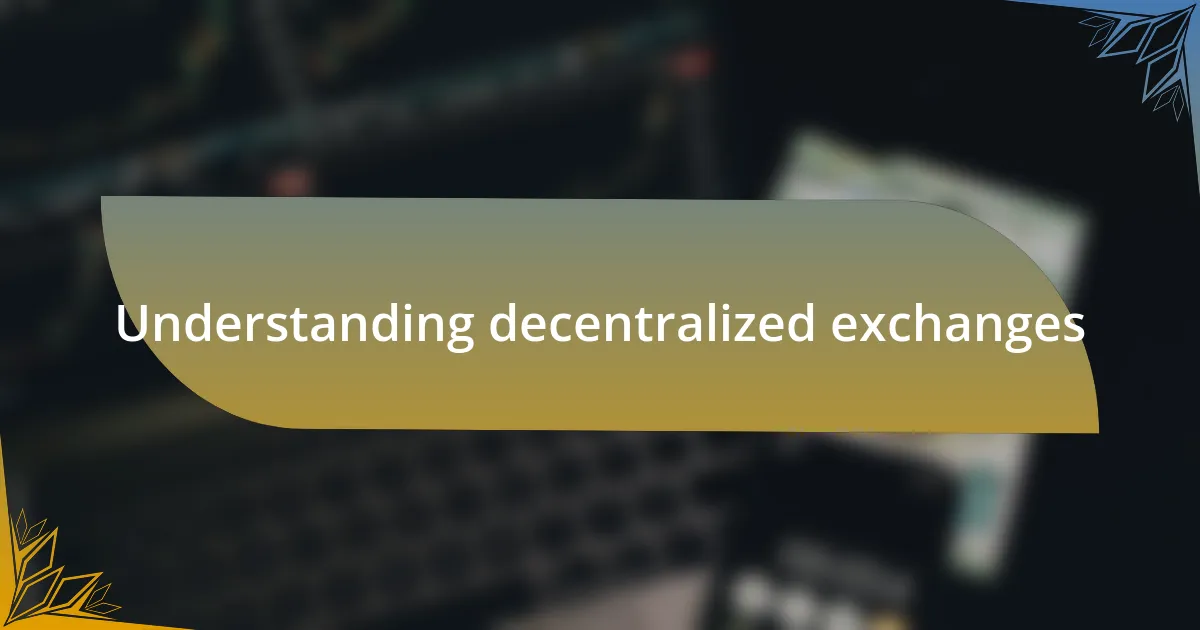
Understanding decentralized exchanges
Decentralized exchanges (DEXs) represent a significant shift in how we trade cryptocurrencies. Instead of relying on a central authority to facilitate trades, DEXs allow users to engage directly with each other. I still remember my first encounter with a DEX; it felt liberating to execute trades without the oversight of an intermediary, which is one of the core principles of cryptocurrency.
Unlike traditional exchanges, DEXs operate on smart contracts, which are sets of rules coded into the blockchain. These contracts automatically execute trades when specific conditions are met, removing the need for trust in a third party. I can recall the sense of empowerment I felt when I realized I didn’t have to share sensitive personal information or go through intrusive verification processes. Isn’t it fascinating how such mechanisms can enhance both privacy and security?
One might wonder, though, how do DEXs handle liquidity since there’s no central entity to manage it? The answer lies in liquidity pools, where users can contribute their assets in exchange for a share of the transaction fees. This model not only provides liquidity but also incentivizes users to participate actively in the ecosystem. Reflecting on my experiences, I find it quite rewarding to earn fees while also supporting a trading environment where users can interact freely.
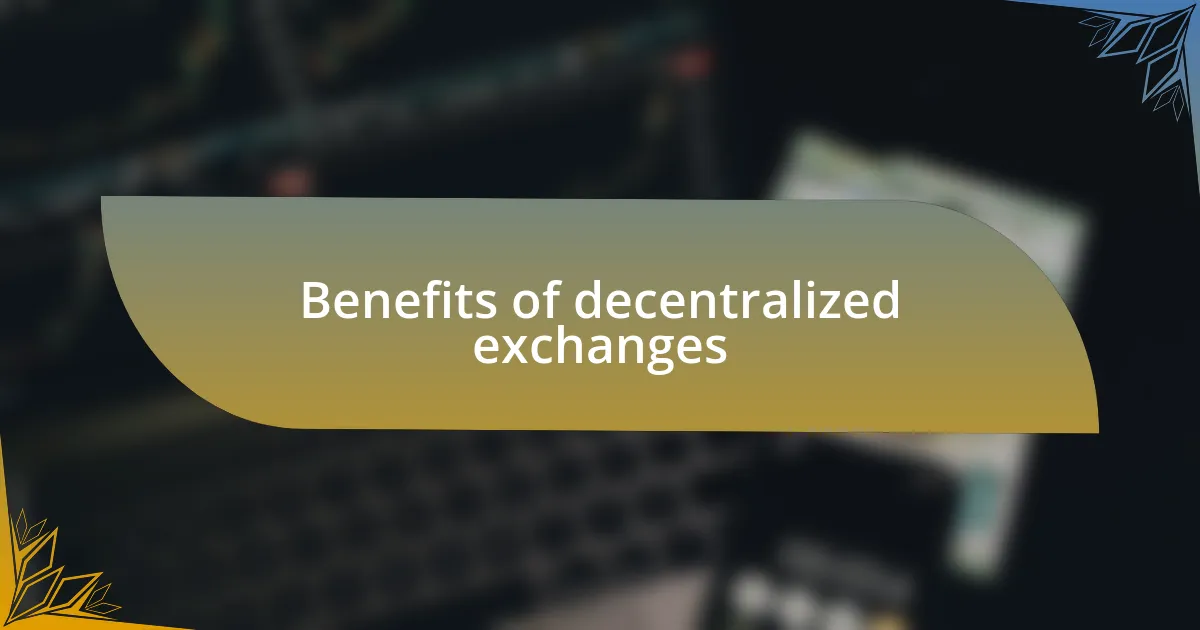
Benefits of decentralized exchanges
The most significant benefit of decentralized exchanges is the enhanced control they offer users over their assets. I remember the first time I placed an order on a DEX; it was such a relief to know that my funds weren’t held by an exchange that could suddenly freeze my account. This autonomy boosts my confidence in trading, knowing that I’m the only one who has access to my private keys and funds.
One of the aspects I appreciate most about DEXs is the increased accessibility they provide. Unlike traditional platforms that may restrict access based on geographical location or regulatory requirements, DEXs are open to anyone with an internet connection. I often reflect on how empowering it felt to be able to trade anytime, anywhere, without having to navigate the labyrinth of KYC (Know Your Customer) processes that are common with centralized services.
Additionally, decentralized exchanges typically have lower fees compared to their centralized counterparts. This is partly because there are no intermediaries to pay and the operational costs are minimized. I can’t help but think of the savings I’ve incurred over time while trading on these platforms, which allows me to reinvest those funds elsewhere—really enhancing my trading experience. Wouldn’t you agree that saving on fees can significantly impact your overall investment strategy?
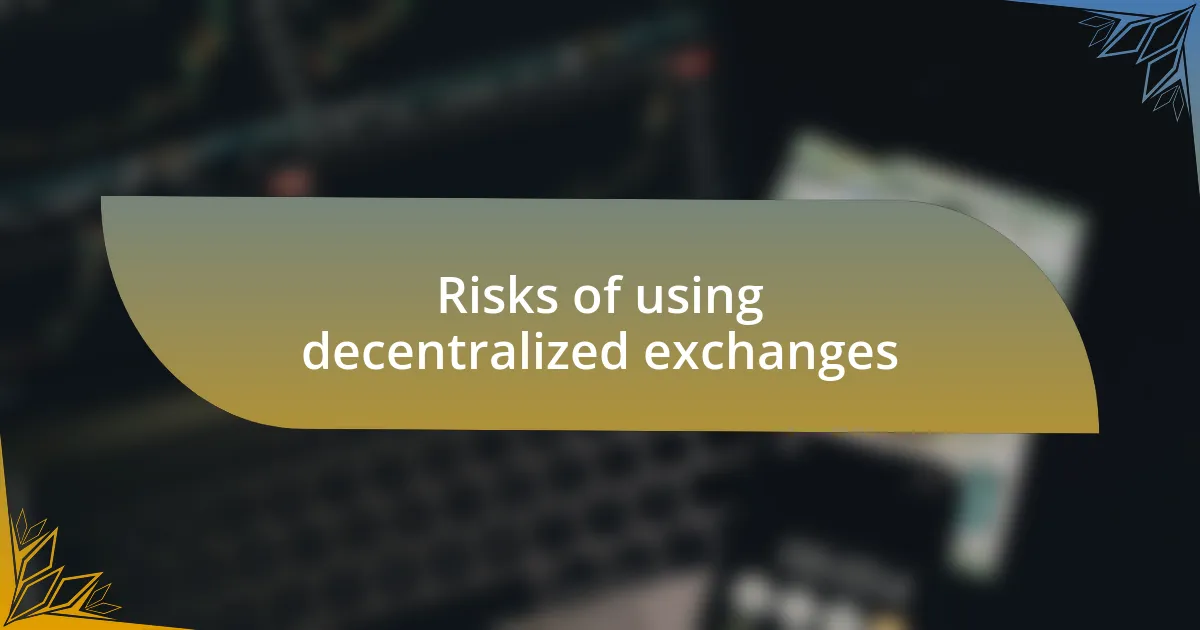
Risks of using decentralized exchanges
Using decentralized exchanges (DEXs) also comes with significant risks that users must consider. Personally, I’ve experienced the frustration of navigating a DEX where a sudden drop in liquidity led to slippage, impacting the price I received for my trades. Have you ever noticed how unpredictable prices can be on these platforms, especially during peak trading times? It can feel like a gamble.
Another concern is security, primarily due to smart contracts, which power these exchanges. While I’ve had some great experiences, I’ve heard stories about others losing funds because of vulnerabilities in these contracts. It’s a stark reminder that just because a platform is decentralized, it doesn’t guarantee safety—there’s always a need for due diligence and research before engaging with a DEX.
Additionally, I can’t overlook the potential for scams and impersonation. Just a while ago, I encountered a phishing attempt that mimicked a popular DEX, and it made me realize how critical it is to stay vigilant and guard my private keys. It’s scary to think that one wrong click could lead to lost assets—it’s a risk we all need to manage. How do you ensure you’re trading safely on a DEX?
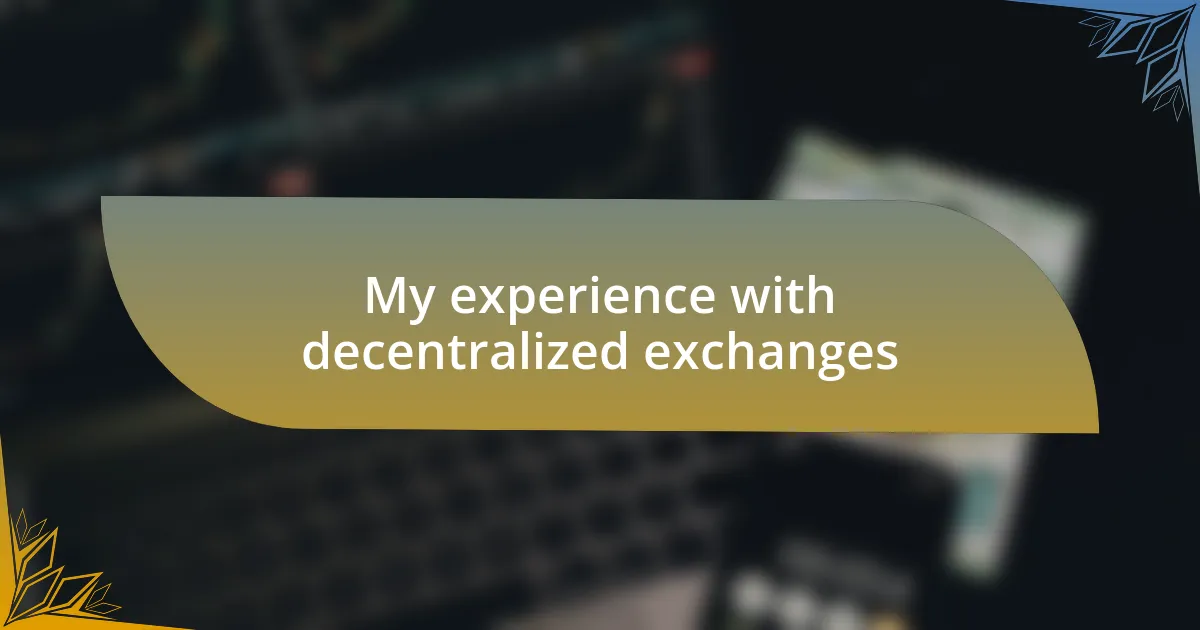
My experience with decentralized exchanges
When I first started using decentralized exchanges, the allure of direct control over my assets was intoxicating. I still remember the excitement of executing my first trade without a centralized authority involved—just me and the blockchain. Have you felt that thrill of empowerment? It’s a unique sensation to engage with technology that puts you in the driver’s seat.
Navigating these platforms can be a double-edged sword, though. I vividly recall a time when I quickly swapped tokens, only to realize too late that I had overlooked transaction fees that significantly cut into my profits. It left me feeling quite frustrated, questioning whether the freedom of DEXs truly outweighs the complexities. Has a small oversight ever turned your experience sour?
Moreover, while the community aspect of DEXs is often highlighted, I found it lacking on occasion. Once, I sought help in a chat room and was met with a barrage of conflicting advice—some being well-intentioned, others downright misleading. It made me wonder, how do you determine who to trust in such an unregulated space? Embracing the decentralized ethos means you need to rely on your research, but it can sometimes feel isolating.
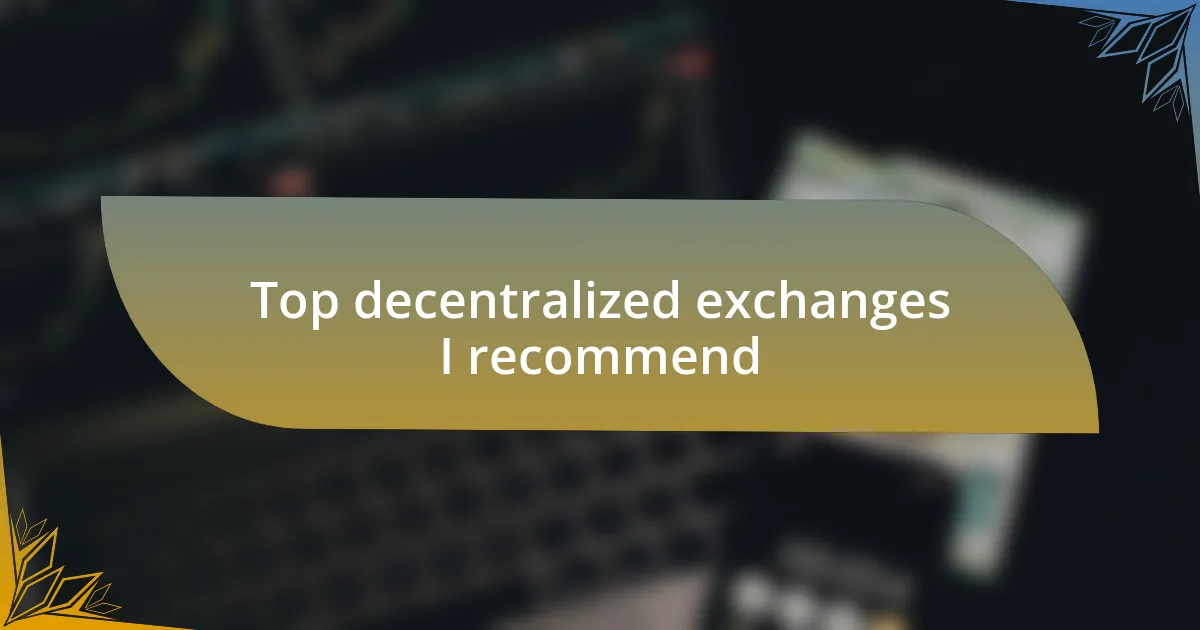
Top decentralized exchanges I recommend
When it comes to decentralized exchanges, I consistently find myself drawn to Uniswap. My first experience trading there was exhilarating; the user-friendly interface made it easy to navigate, and I felt a genuine sense of community while participating in liquidity pools. Have you ever felt that rush of being part of something larger while trading? It’s empowering to contribute to a platform that embraces decentralization.
Another platform I recommend is SushiSwap. The variety of tokens available and the unique features, like yield farming with their token rewards, kept me engaged for hours. I remember eagerly checking my earnings, feeling a mix of excitement and trepidation—would my efforts pay off? That thrill of possibility is hard to replicate elsewhere, especially when you see your contributions directly impacting your returns.
Additionally, I can’t overlook PancakeSwap for its efficiency with Binance Smart Chain transactions. The speed of swaps is something I deeply appreciate, especially during times of high market volatility. Have you noticed how crucial timing can be in trading? I’ve had moments where swift action made all the difference, and PancakeSwap consistently delivers in that regard.